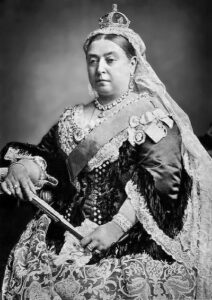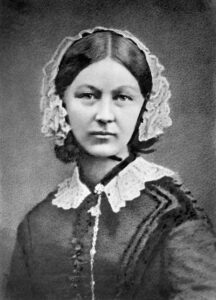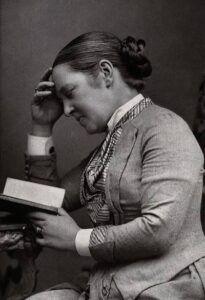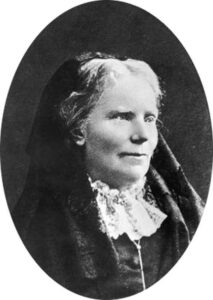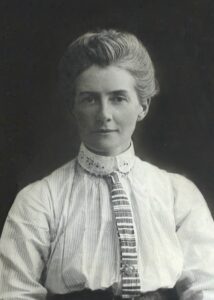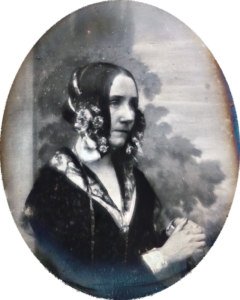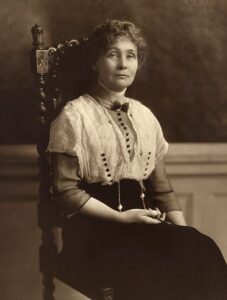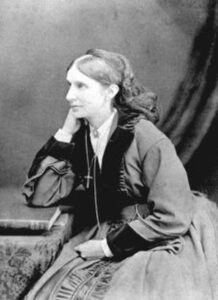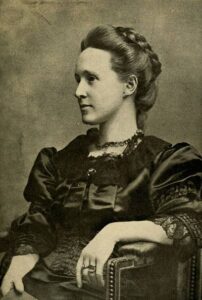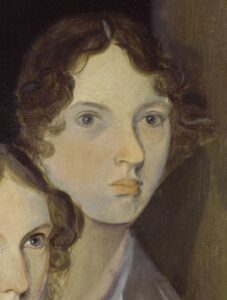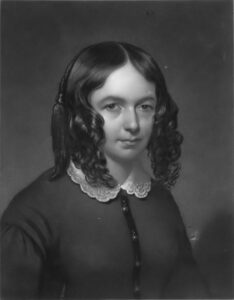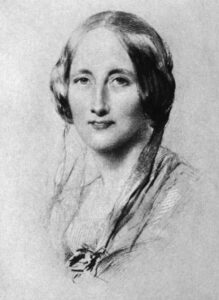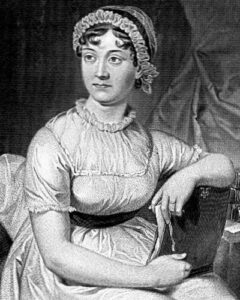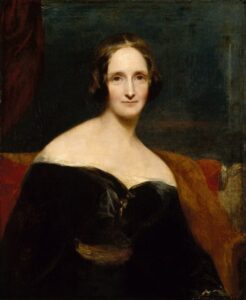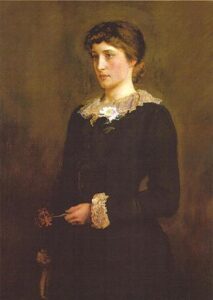15 game-changing famous British Victorian women
Date post added: 12th January 2024
Firstly, it’s not a competition! Here, we’ll celebrate 15 of the most influential and admirable women in nineteenth century Great Britain.
The Victorian era was a significant period in British history. The 19th century was a time of change, of pioneering develop ments and great innovation. The Victorian era lasted the reign of Queen Victoria, from 1837 to 1901. With a queen on the throne, it was a time in which women were actively involved in making change happen across myriad fields (albeit in the face of manmade obstacles and challenges).
1. Queen Victoria
Given that the era is named after her, Queen Victoria rightly takes her position in the top spot. Victoria became queen aged only 18 and ruled for over 63 years. During that time, Britain became a world power and the British empire expanded. Queen Victoria wasn’t only Queen of England and the United Kingdom, she was Empress of India too.
Women in medicine
2. Florence Nightingale
Florence Nightingale transformed the nursing profession at this time. Born in Italy, she came from a wealthy British family and her decision to undertake nursing training in Germany was considered unusual for someone of her social class. During the Crimean War, she made relatively simple changes which had a dramatic effect and saved countless lives. Known as “The Lady with the Lamp”, she introduced new standards of hygiene and treated patients with dignity. Later, Florence Nightingale founded a training school for nurses in London. Her practices in hygiene and caring still influence nurse training today.
3. Elizabeth Garrett Anderson
Elizabeth Garrett Anderson was the first woman to qualify as a doctor in Britain. It was an incredible achievement considering the strong opposition she encountered from the male-dominated medical establishment. But she persevered and had a successful medical career.
4. Elizabeth Blackwell
Born in England, Elizabeth Blackwell moved to America in 1832 with her family. She became the first female to graduate from an American medical school. Later in 1868, she opened the Women’s Medical College in New York with help from Florence Nightingale.
5. Edith Cavell
Edith Cavell grew up in Norfolk and trained, first as a governess, and then became a nurse. She took up a position as a matron in Brussels in Belgium’s first training hospital. Her pioneering work with nurses led her to be known as the founder of modern nursing in Belgium. Later, in the early 20th century, she worked actively in occupied Belgium during World War I and helped hundreds of British, French and Belgian soldiers escape German troops. Sadly, she was arrested, tried and executed in 1915. Know more about the extraordinary work of London’s Women of World War I walk.
Women in technology
6. Ada Lovelace
Ada Lovelace was the daughter of the poet Lord Byron and Annabella Milbanke. Her mother was an extremely intelligent woman who encouraged her daughter’s interest in maths and logic. Aged 17, Ada met Charles Babbage who was an inventor and mathematician. She was enthralled by his work on an analytical engine. Her writings on the invention are seen now as the first computer program or algorithm. Her vision for the machine’s future potential is extraordinary given the limited opportunities for women at that time. Find out more about Ada on our Old Marylebone walk
Women in social reform
7. Emmeline Pankhurst
Picture a time when women weren’t entitled to vote for a member of Parliament. This injustice riled many people, and the 19th century saw the rise of the women’s suffrage movement.
Emmeline Pankhurst was a British suffragette who fought hard for women’s right to vote. A strong activist, she founded the Women’s Franchise League in 1889 with the aim of allowing married women to vote. Then came the more radical Women’s Social and Political Union (WSPU) which spawned the activist suffragette movement. She was arrested and jailed numerous times and even went on hunger strike for her cause. Her daughters, Sylvia and Christabel, joined her in the fight for women’s rights and continued campaigning in the subsequent Edwardian era. Know more stories of Suffragettes and other heroines in The Women of World War I – Lest we forget, lest we forget walking tour.
8. Josephine Butler
Another champion for women’s rights, Josephine Butler was a prominent social reformer in the Victorian era. She was passionate about the plight of prostitutes and successfully campaigned to repeal the Contagious Diseases Act in 1886. Highly educated herself, Josephine Butler promoted access to higher education for women.
9. Millicent Fawcett
Millicent Fawcett (nee Garrett) was born in Suffolk and was the younger sister of Elizabeth Garrett Anderson. With a pioneering sister role model, Millicent campaigned for women’s suffrage. Her husband, Henry Fawcett, was a Cambridge University professor in political economy. Millicent helped to found Newnham College, Cambridge in order to increase women’s access to education. She also led the largest law-abiding women’s suffrage society, the National Union of Women’s Suffrage Societies (NUWSS).
Discover the stories of these suffragettes and more incredible females in our Women of World War I walk.
Women in print
10. Emily Bronte
Emily Bronte’s upbringing by the Yorkshire Moors provided the ideal, turbulent setting for her only novel, Wuthering Heights. The classic literary tale is still told today. Along with her talented siblings, Charlotte and Anne, Emily’s considered a pioneer of feminist literature. Sadly, her life was cut short and she died of tuberculosis aged only 30.
11. Elizabeth Barrett-Browning
Elizabeth Barrett Browning was a celebrated Victorian poet. She came from an affluent background and gained a good education. But an excruciating spinal disease blighted her life and she took comfort in literature, including feminist and social writings. Her own poetry addressed social issues of the time and she went on to campaign for the abolition of slavery and to reform child labour laws. Her writings caught the eye of a certain Robert Browning, and her love sonnets to him are as famous as her insightful social commentaries. We discuss her in more detail on our Old Marylebone tour
12. Elizabeth Gaskell
English novelist, Elizabeth Gaskell is often known simply as Mrs Gaskell. Her novels clearly depict the experiences of not just the wealthy, but middle class and working class people too. She pointed out various uncomfortable truths about society. Consequently, she’s seen as an important social historian rather than simply a writer. Her books include North and South, Wives and Daughters and Cranford.
13. Jane Austen
Possibly the most famous of the Victorian female writers, Jane Austen penned classic romantic fiction. The most famous titles include Sense and Sensibility, Emma and Pride and Prejudice. Little did she know then that centuries later, people would be salivating over her depiction of a dripping wet Mr Darcy. But it’s Jane Austen’s witty social commentary that makes her work so important. Learn more about Jane Austen and other Literary Superstars by joining A Literary Odyssey – Ink & Inspiration in Mayfair & St. James tour.
14. Mary Wollstonecraft Shelley
The creator of the legendary work of fiction, Frankenstein, Mary Wollstonecraft Shelley was a celebrated English novelist. She married Percy Bysshe Shelley, a renowned Victorian poet, and they formed part of a creative circle of intellectuals. It was her mother, Mary Wollstonecraft who wrote A Vindication of the Rights of Woman, a feminist piece which argued that women should be able to participate in society on an equal footing with men.
Women in the spotlight
15. Lillie Langtry
Lillie Langtry was famous for very different reasons. She became the first society woman to perform on stage (encouraged by Oscar Wilde). She became a successful actress and gained a series of admirers, the most famous of which was the then Prince of Wales. They began an affair which became public knowledge in 1879 and had to end. Not long after, she moved on to another member of the royal family – Prince Louis of Battenburg. Whilst the relationship didn’t last long, the impact did. She fled to France, hiding the fact that she was pregnant with his child. We spill more of Lillie Langtry’s secrets on our Oscar Wilde walking tour and In the Footsteps of Sherlock Holmes tour.
—————————-
Our London Walks Guide, Fiona Jane Weston really knows her stuff about women’s history. Take a literary walk with her to hear fabulous stories about incredible females. Fiona’s also an actress, singer, writer and producer. When she’s not storytelling on London’s streets as our guide, you’ll find her treading the boards. Currently, she has a Wartime Women show which will celebrate some of these extraordinary Victorian women.

